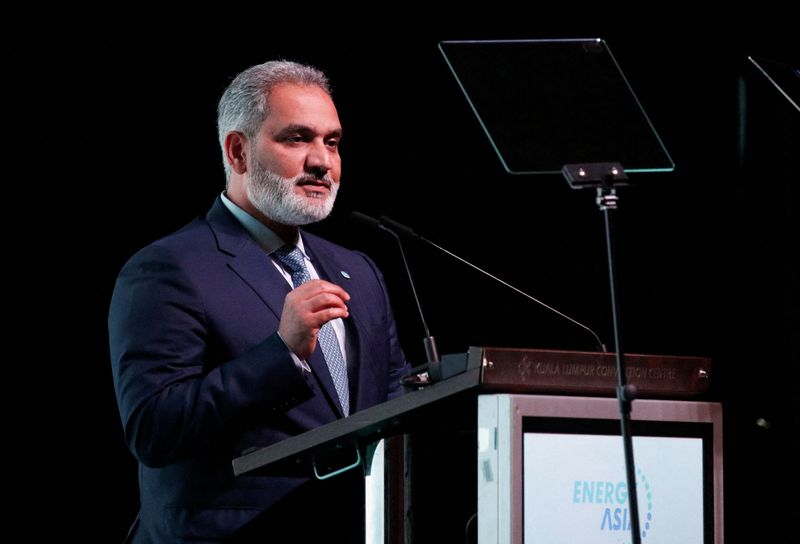LONDON (Reuters) - The end of oil is not in sight, OPEC's top official said, as the pace of energy demand growth means that alternatives cannot replace it at the needed scale, and the focus should be on cutting emissions not oil use.
In an op-ed article in the Middle East Economic Survey (MEES) published on Friday, OPEC Secretary General Haitham Al Ghais wrote there is "a worrying trend of narratives" that use terms like the end of oil, which have the potential to foster energy policies that stoke energy chaos.
"What if investments in supply fall as a result, but demand for oil keeps increasing, as we are seeing today?," Al Ghais wrote in the MEES article which OPEC shared on X.
"The reality is that the end of oil is not in sight," he wrote.
The Organization of the Petroleum Exporting Countries believes oil use will keep rising in coming decades, in contrast to bodies such as the International Energy Agency, which predicts it will peak by 2030.
The oil industry is investing in technologies like carbon capture utilization and storage, clean hydrogen and direct air capture, and so "showing that it is possible to reduce emissions while producing the oil the world needs," Al Ghais wrote.

Al Ghais wrote that the world has invested over $9.5 trillion in transition costs over the past two decades, yet wind and solar still only supply just under 4% of the world's energy, while electric vehicles have a total global penetration rate of between 2% and 3%.
"The reality is that many alternatives cannot replace oil at the necessary scale, or are unaffordable in many regions."